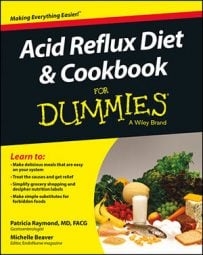Anyone of any size can suffer from acid reflux — if you have a stomach and an esophagus, you’re fair game. It doesn’t matter if you’re at a healthy weight or obese — you can still experience that troublesome burn. However, excess weight does increase your chances of developing acid reflux, and if you already have acid reflux, the state of being overweight can make it worse.
Recent research has shown just how much impact body weight can have. Gaining even a few extra pounds can be the catalyst for heartburn. An increase of 10 to 20 pounds makes you three times more likely to experience reflux symptoms. The good news is that shedding just a few excess pounds can reduce or even eliminate reflux from your life.
While the link between excess weight and acid reflux has been proven, researchers have yet to identify the precise reason weight has such an impact. The most commonly accepted explanation is that excess weight increases the pressure on the abdominal cavity, and this extra pressure can result in the stomach forcing acid into the esophagus.
For some people, shedding just a few pounds may be the key to eliminating acid reflux. This is welcome information for anyone who can’t imagine a life without hot sauce. Plus, losing weight has other benefits outside of reducing or eliminating your acid reflux.
Shedding excess pounds also reduces your risk for other significant health issues, such as heart disease and diabetes. And you’ll never get tired of looking and feeling better and hearing your friends and family talk about how great you look!
Daily physical exercise is one way you can cut weight and maintain or improve overall health. Aim for about 30 minutes of physical activity every day. You don’t have to sign up for an expensive gym membership or book time with a personal trainer. A good old-fashioned walk or leisurely bike ride can help you drop a few pounds and improve your overall health.
In addition to physical activity, another important key to losing weight is cutting calories. Cutting calories doesn’t mean you have to starve or eat tasteless food or follow the latest trendy diet. Studies have shown that reducing your daily caloric intake is more important than eliminating fat, carbs, or protein from your diet — besides, you need fat, carbs, and protein!
Aim for cutting between 500 to 1,000 calories per day and a modest weight loss target of 1 to 2 pounds a week. You may lose more weight with more severe diets, but you’re also significantly more likely to gain that weight back as soon as you get off the diet, and who knows what strange side effects you’ll get from a diet of, say, all grapefruit?

